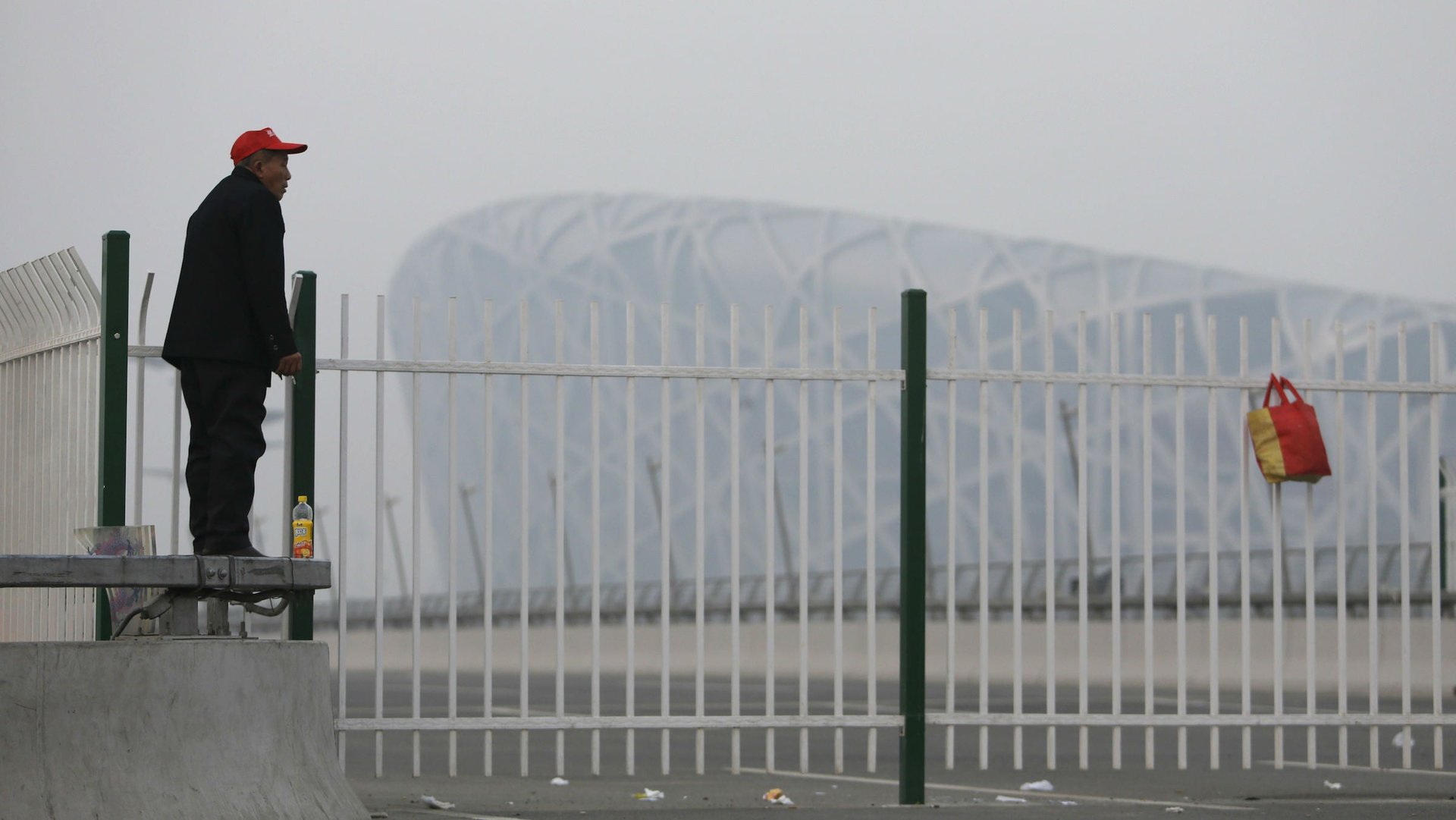Hosting the Winter Olympics in Beijing is a terrible idea
Inspectors from the Olympic Committee just wrapped up their evaluation of Beijing, one of two cities vying to host the Winter Olympics in 2022. Chances are looking pretty good for the Chinese capital, which held the Summer Olympics in 2008. After this week’s visit, the head of the committee’s evaluation commission complimented China’s focus on sustainability and frugality in its bid.


Inspectors from the Olympic Committee just wrapped up their evaluation of Beijing, one of two cities vying to host the Winter Olympics in 2022. Chances are looking pretty good for the Chinese capital, which held the Summer Olympics in 2008. After this week’s visit, the head of the committee’s evaluation commission complimented China’s focus on sustainability and frugality in its bid.
But plenty of questions remain about what Beijing learned from hosting the 2008 Olympics, and how “sustainable” it is to host the winter games there. The committee is deciding between Beijing (which will feature the mountain events in nearby Zhangjiakou) and Almaty in Kazakhstan. The winner will be announced in July. Here are three reasons why it shouldn’t be Beijing:
1. Beijing doesn’t have enough water (or snow)
The Winter Olympics will require a lot of water that Beijing doesn’t have. Northern China’s driest season is in the winter. Precipitation in Beijing during February, when the Games would be held, averages about 5.9 millimeters (0.2 inches). And co-host city Zhangjiakou only gets about eight inches of snow a year. Declining rainfall and climbing temperatures in Zhangjiakou has left a major river, the Qingshui, depleted and overstressed. Most ski resorts—including Yanqing which would host events like alpine skiing and bobsledding—rely on artificial snow.
Authorities insist that all host cities need to produce artificial snow and that there is enough water in Beijing to go around. But at what cost? One of the reasons why China launched the world’s biggest water transfer system, a project that cost over $60 billion and displaced almost half a million people, was to pump water to Beijing before the 2008 Olympics. More engineering feats like another diversion project on the Yunzhou reservoir, near Zhangjiakou, will be necessary to ensure enough water for the Games.
2. The air is awful
Winter in Beijing is one of the worst times for air pollution. The capital is one of the country’s most polluted cities: levels of PM2.5—airborne particulates so fine that they can enter people’s bloodstream—are five times the national average.
Chinese officials argue that the country has proven it can clear the skies for big events, as it did before the 2008 Olympics and more recently when Beijing hosted the Asia-Pacific Economic Cooperation summit. This was done via cloud seeding to make it snow or rain, strict controls on traffic, closing nearby factories, as well as outlawing barbecue stands and generally discouraging citizens from doing things outside.
In both cases, air pollution bounced back to normal hazardous levels, and then some, after these showpiece events.
3. Human rights will suffer
Major international events hosted in Beijing are always preceded by a clampdown on political dissent, a rounding up of activists, and stricter censorship. Before the 2008 Olympics, officials covered up the discovery that infant formula laced with melamine was still being sold throughout the country, allowing at least 300,000 babies to become sick and killing six. Given that 2022 will mark 10 years since Xi Jinping rose to leadership, we can expect an even tighter hold on civil society.
The 2008 Olympics marked a coming out for China, but in some ways they were also an embarrassment. Computer enhanced fireworks, pollution, overbearing restrictions on foreign media, mass displacement of residents, and a little girl lip synching at the opening ceremony because the real singer wasn’t deemed pretty enough showed the world how obsessed and insecure the country is about its image. It’s not clear that this will have changed by 2022.